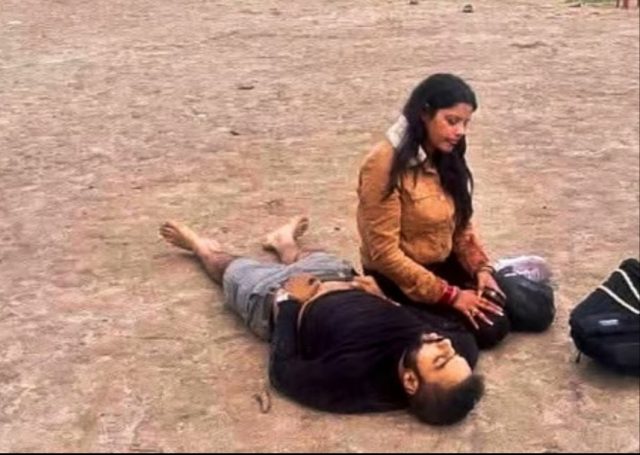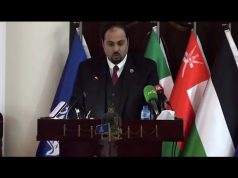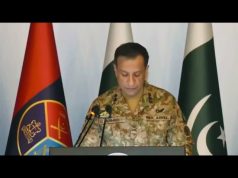ISLAMABAD, Wednesday, April 23, 2025 (WNP): Prime Minister Muhammad Shehbaz Sharif has summoned a meeting of the National Security Committee (NSC) for Thursday morning to deliberate Pakistan’s official response to the Indian government’s provocative actions and statements following the deadly shooting in Pahalgam, Indian Illegally Occupied Jammu and Kashmir (IIOJK).
The announcement comes as India, reacting to the tragic deaths of 26 tourists in the Pahalgam incident, escalated diplomatic tensions by suspending the Indus Waters Treaty, shutting down the Attari border crossing, and ordering Pakistani nationals in India to leave the country within 48 hours. Additionally, India directed Pakistani High Commission staff to exit within a week and announced a reduction in diplomatic personnel.
Indian Foreign Secretary Vikram Misri detailed the measures during a press briefing after a meeting of the Indian Cabinet Committee on Security (CCS) held in New Delhi.
In response, Pakistan’s Deputy Prime Minister and Foreign Minister, Mohammad Ishaq Dar, took to social media platform X to express Islamabad’s concern over the developments, terming India’s steps as “irresponsible and escalatory.”
The Foreign Office also issued a statement condemning the loss of innocent lives. “We are concerned at the loss of tourists’ lives in an attack in Anantnag district of Indian Illegally Occupied Jammu and Kashmir,” said FO Spokesperson Shafqat Ali Khan. He conveyed condolences to the bereaved families and prayed for the speedy recovery of the injured.
Federal Minister for Water Resources Mian Moeen Wattoo has asserted that India cannot unilaterally revoke the Indus Waters Treaty (IWT), emphasizing that the agreement is backed by international guarantors and legal frameworks.
In a statement, the minister said the treaty — brokered in 1960 with the assistance of the World Bank — is internationally recognized and cannot be discarded at the whim of one party.
“Pakistan will not yield to external pressure. Any unilateral aggression from India regarding water rights will be met with a firm and proportionate response,” Wattoo said.
Echoing similar concerns, Minister for Power Division Sardar Awais Ahmed Khan Leghari denounced India’s move as a form of “water warfare,” calling it a reckless and provocative act.
“India’s unilateral suspension of the Indus Waters Treaty is not just a violation of international law but an act of hostility,” Leghari stated in a press release from the Ministry of Power. “It is a cowardly and illegal maneuver. Every drop of water allocated to Pakistan is ours by right, and we will defend it through all available legal, political, and diplomatic channels.”
The strong statements from both ministers come amid heightened tensions between Islamabad and New Delhi following the Indian government’s announcement to suspend key components of the Indus Waters Treaty, a move seen by analysts as a serious escalation in bilateral hostilities.
Citing reports from the Kashmir Media Service, at least 26 non-local tourists were feared dead in the attack carried out by unidentified gunmen in the scenic Baisaran area of Pahalgam. The site is only accessible by foot or horseback.
Soon after the incident, Indian media and social media accounts linked to Indian intelligence agency RAW began accusing Pakistan of orchestrating the attack. Hashtags such as #PakSponsoredTerror began trending on X within 30 minutes of the incident, according to sources familiar with the digital trail. Senior BJP leaders, including JP Nadda and Amit Shah, issued statements within an hour, fueling a narrative that linked Pakistan to the tragedy without providing substantive evidence.
Defense and intelligence analysts in Pakistan have raised serious questions about the Indian narrative. “How is such an attack possible in a region where over 900,000 Indian troops are deployed?” asked one expert, noting that Pahalgam is nearly 400 kilometers from the Line of Control.
They further questioned why Indian media failed to present verifiable evidence, such as the bodies of the victims. “Only a suspicious image has surfaced, showing a woman beside a man lying on the ground—without blood or visible injury,” said one expert.
Security analysts also pointed out the timing of the incident, which coincided with the visit of the U.S. Vice President to India. “India has a history of staging false flag operations during high-profile international visits or before major domestic events to draw global sympathy and malign Pakistan,” said a senior official.
They highlighted India’s longstanding pattern of using such incidents to stoke anti-Pakistan sentiment and distract from its own governance failures in IIOJK. “Terrorism has no religion, yet India repeatedly attempts to link such acts to Pakistan and Muslims,” they added.
The experts called on the international community to scrutinize India’s claims critically and demand evidence before jumping to conclusions. “If India has proof, it must present it to the world. Otherwise, it should refrain from warmongering and baseless accusations,” they asserted.




